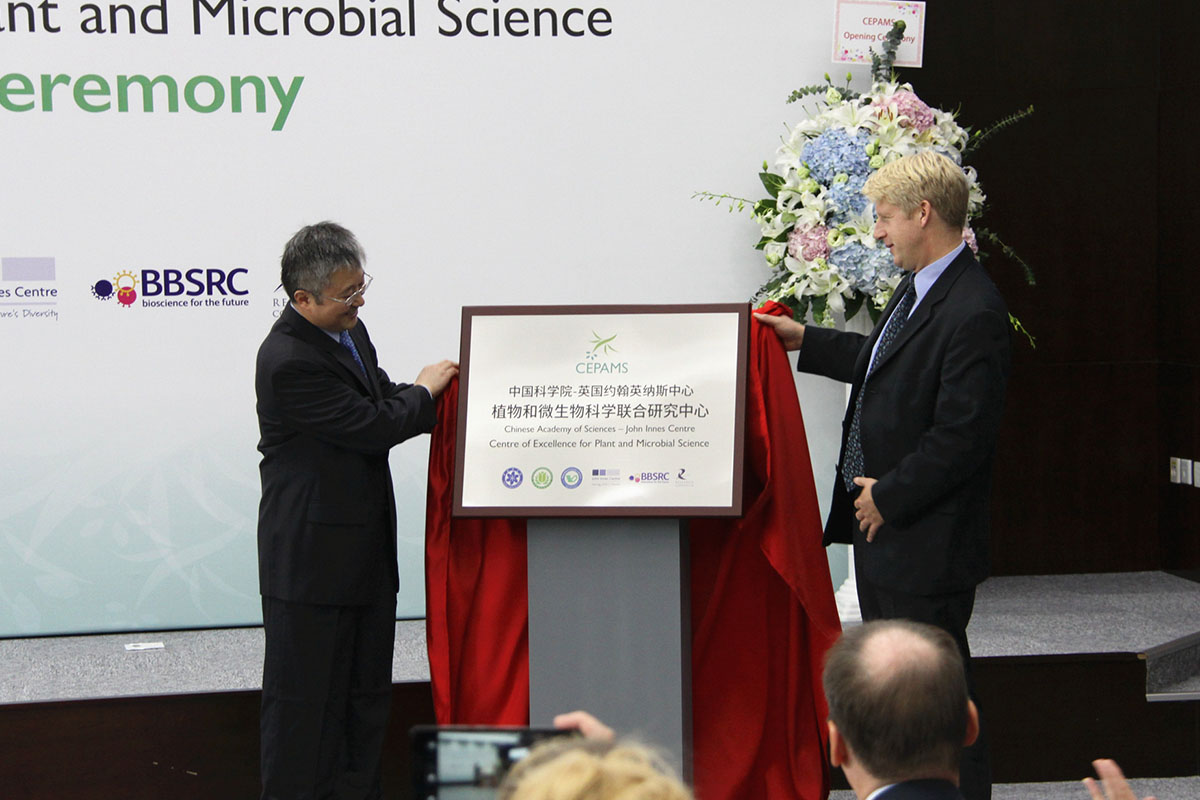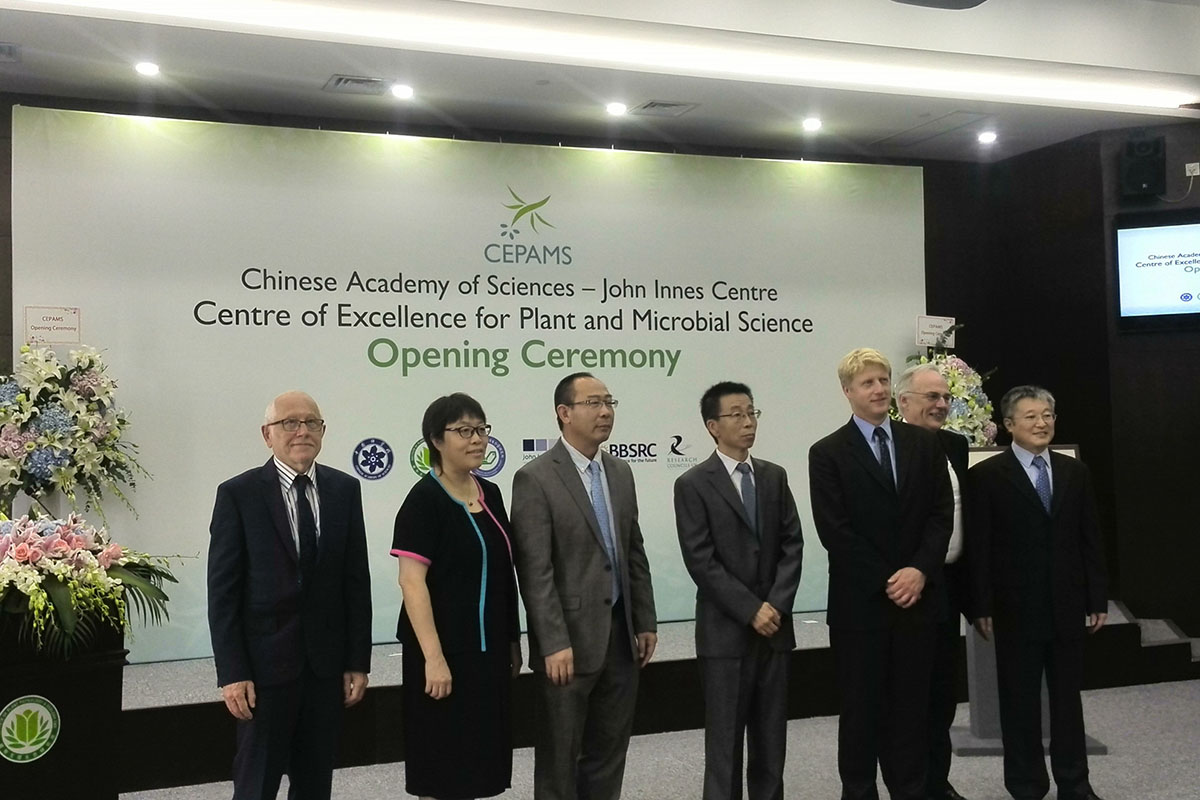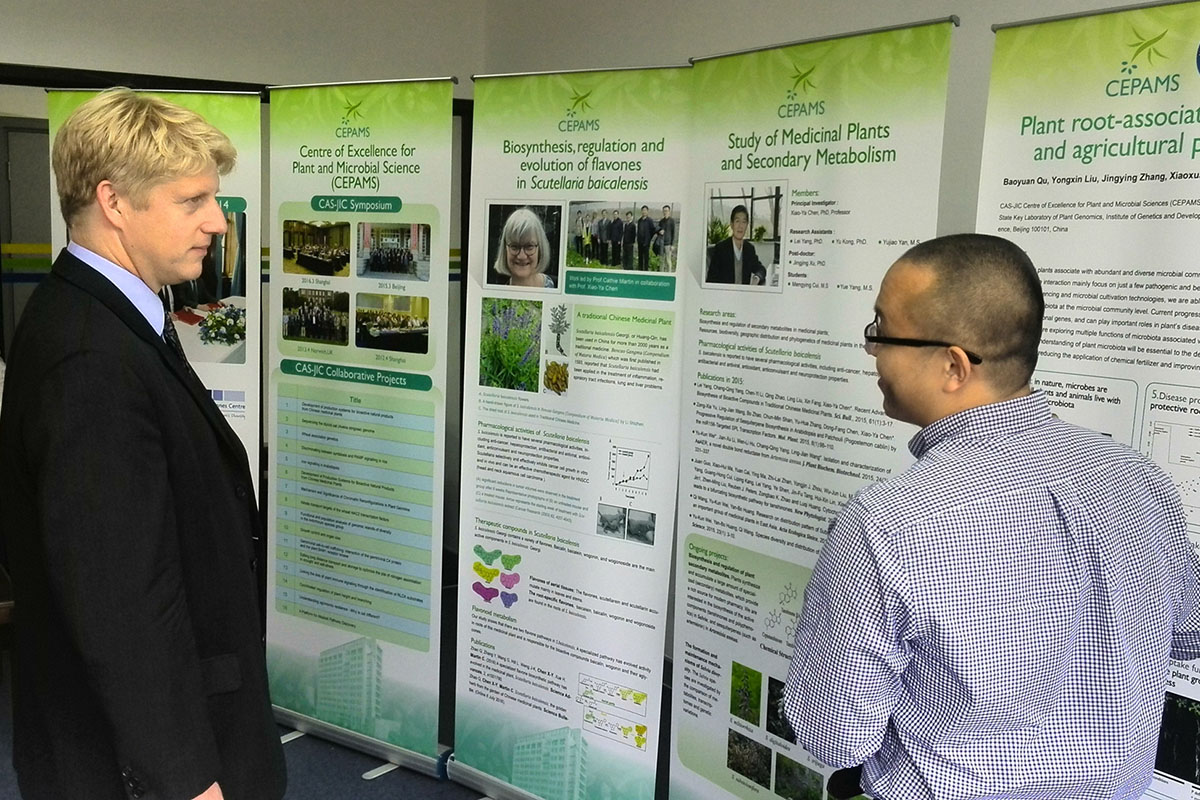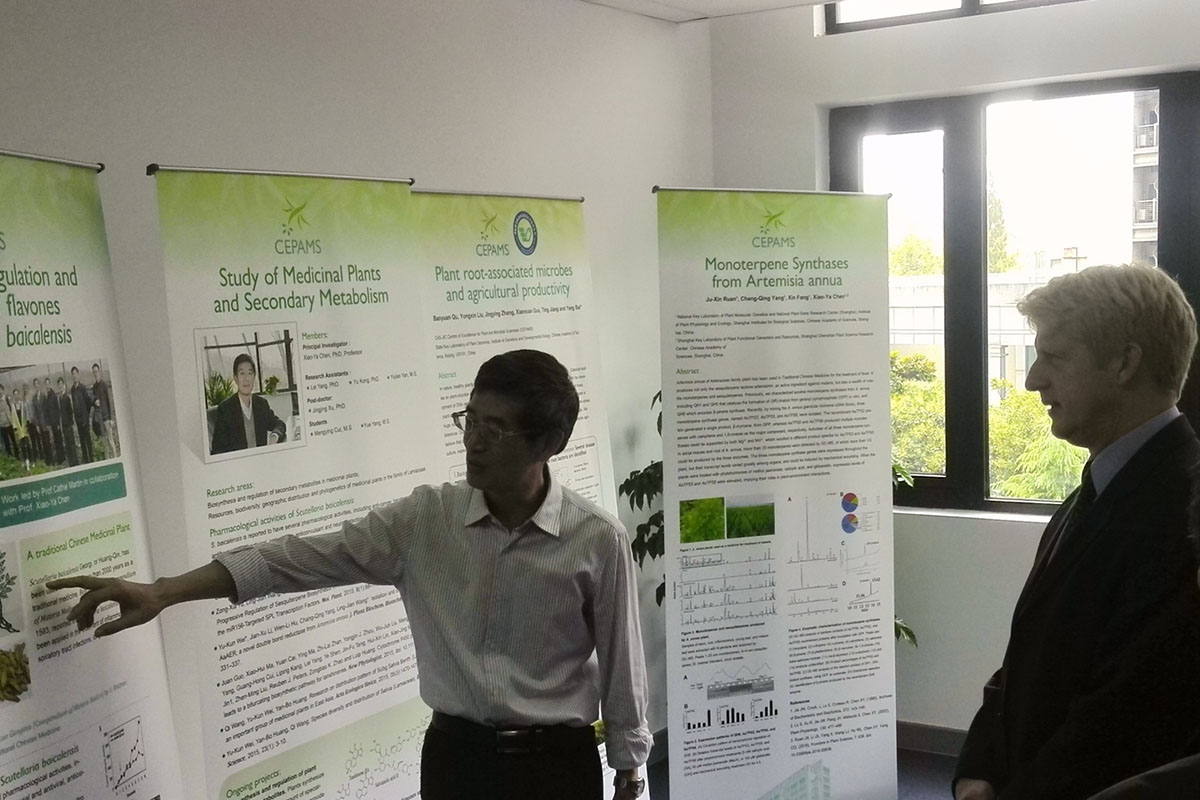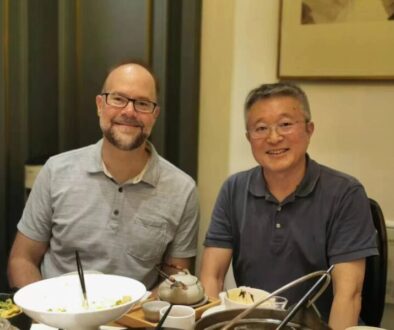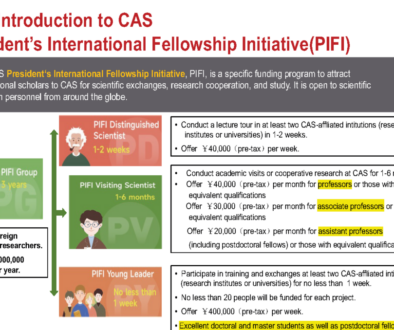Launch of Shanghai Laboratory Bolsters UK-China Scientific Collaboration
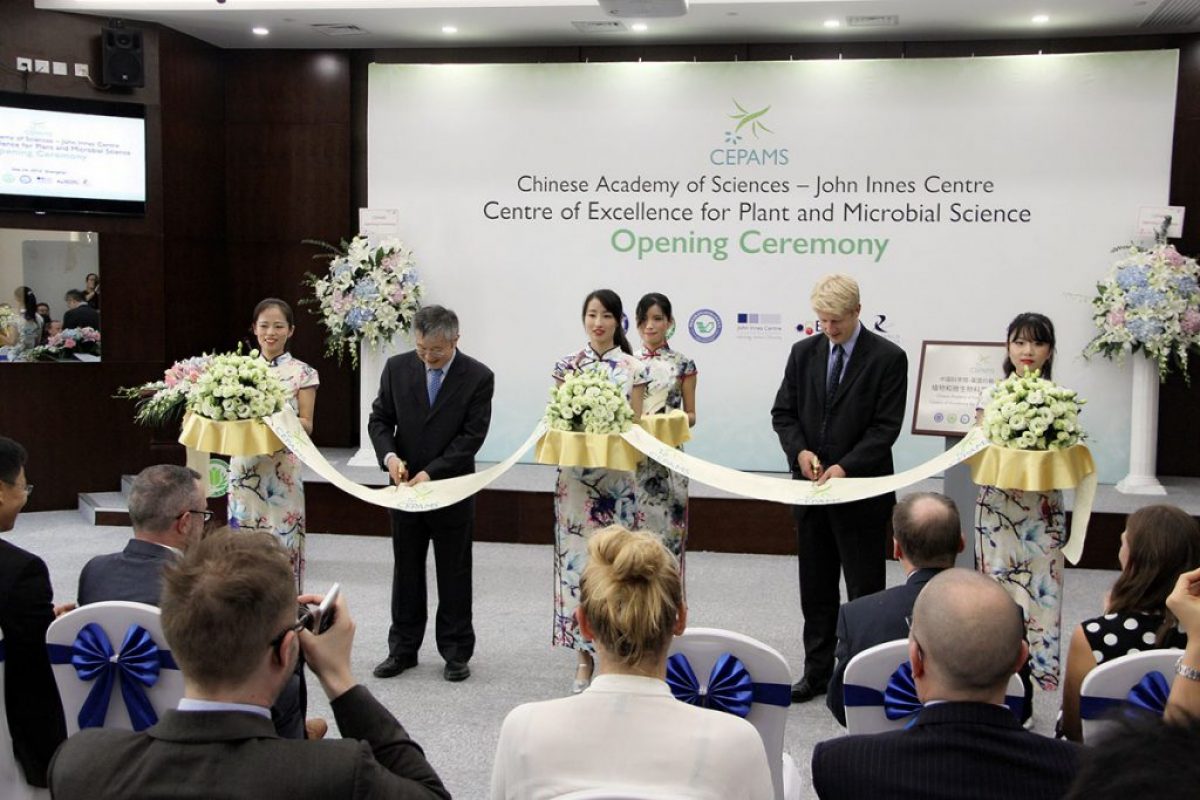
The Centre of Excellence for Plant and Microbial Science (CEPAMS) was formally opened in Shanghai by Jo Johnson MP, the UK Minister of State for Universities, Science, Research and Innovation, on 24 September, 2016.
CEPAMS forms the basis of an international partnership between the UK’s John Innes Centre and two institutes of the Chinese Academy of Sciences. The CEPAMS partnership was established in 2014 with funding from the UK Biotechnology and Biological Sciences Research Council (BBSRC) and the Chinese Academy of Sciences (CAS). It brings together three world-leading plant and microbial research institutes: the John Innes Centre (UK), the Institute of Genetics and Developmental Biology (Beijing) and the Institute of Plant Physiology and Ecology (Shanghai).
The launch of the Shanghai laboratory marks a milestone for the scientific relationship between the UK and China.
The new facility will be one of two in China with dedicated state of the art laboratories in Beijing and Shanghai. CEPAMS will employ 10 Group Leaders heading internationally outstanding groups of researchers investigating plant and microbial science.
Collaborative research to address the global challenge of food security will be supported in areas such as improving crop yields, decreasing the threat from crop pests and pathogens and reducing the need for artificial fertiliser. Sixteen research themes have already been funded in areas of shared scientific excellence. Research to improve human health includes two projects relating to the study of Chinese traditional medicines.
President of the Chinese Academy of Sciences, Professor BAI Chunli, said in his congratulation letter to the opening of CEPAMS:
“We believe this joint center is not only of much significance to the advances of plant science but global agricultural sustainability. It will prove to be a good example to demonstrate what China and UK can jointly do together for our interests and for the benefits of the rest of the world. “
Director of the John Innes Centre, Professor Dale Sanders, said:
“CEPAMS is a partnership built on a strong historic connection between the JIC and CAS that dates back to JIC being among the first UK institutes to welcome Chinese researchers working abroad in the 1980s. Since then, many Chinese researchers have worked at JIC and over 100 Chinese research alumni still cherish their affiliation with JIC. Today we are seeing our vision of a world class UK/China collaboration in plant and microbial sciences become a reality and I have no doubt that the outstanding, world leading science delivered by this centre will make a huge impact on the big global challenges relating to food security and human health. “
Though the new facility is being opened today, many CEPAMS collaborations have already been established. A team of scientists based in the UK and in China, published important research on how the Chinese plant, Scutellaria Biacellensis produces a potentially valuable anti-cancer compound, paving the way to upscale production for medicinal use.
Minister Jo Johnson said:
“Greater international collaboration is key to solving real-life tangible challenges we face around the world and this new centre is testament to our scientific partnership with China. It will bring together the brightest minds from the UK and China to improve crop production for the world’s growing populations and decrease the risks of pesticides in food production.”
Prof Melanie Welham, CEO of BBSRC, added:
“International collaboration is not only a crucial path forward for UK research and innovation but also an area where we are already clearly demonstrating impact. By working together at CEPAMS the UK and China can use our combined strengths and resources to address common research questions and to tackle major global challenges, far better than we can alone. This relationship delivers value and impact for both the UK and China.”
The first CEPAMS Group Leader, BAI Yang, took up his position in May 2016, joining from the world-renowned Max Plank Institute in Cologne. The BAI laboratory, housed within the Institute of Genetics and Developmental Biology in Beijing, investigates microbes associated with healthy plant growth.
